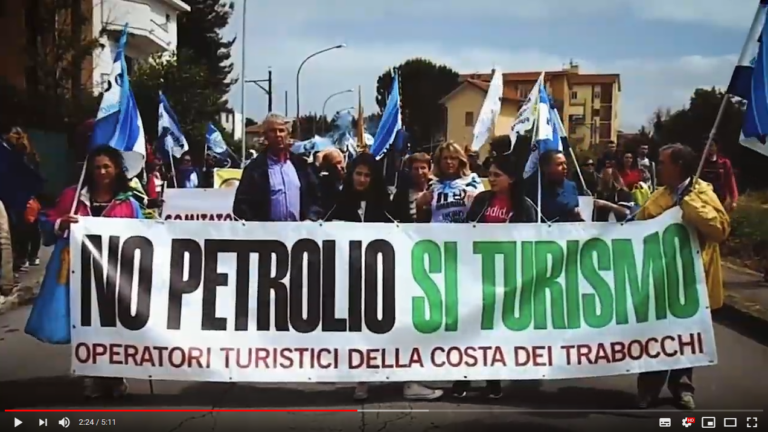
60 years of Dutch investment treaties is no cause for celebration
The Netherlands celebrates 60 years of bilateral investment treaties on 23 May. In 1963, the Netherlands concluded its first treaty with Tunisia. These treaties should play an important role in protecting foreign investments by Dutch companies. In practice, they mainly give multinationals a strong tool of power with dramatic consequences for people and the environment worldwide, according to a study by SOMO, Both ENDS and TNI.
The research shows that the Netherlands is a true ‘claims paradise’ for multinationals. Companies use the Dutch treaties to sue countries for new legislation that harms their investments. This particularly negatively affects citizens in the Global South. Despite the Netherlands drafting a new model to renegotiate the treaties in 2019, nothing has actually changed. The three organisations are calling on the Netherlands to cancel all investment treaties.
Dutch Bilateral Investment Treaties
The Netherlands has a dubious pivotal role
The research by SOMO, Both ENDS and Transnational Institute shows that as a conduit country for international capital flows, the Netherlands plays an important pivotal role in facilitating such claims. Companies that are registered and incorporated in the Netherlands can easily invokeDutch bilateral investment treaties (BITs). As much as 40% of investments in countries with which the Netherlands has a BIT run through letterbox companies.
Through Dutch BITs, 106 cases have already been filed, in which companies have claimed a total of USD 105 billion. This makes the Netherlands the second most popular country from where claims are filed, after the United States.
The majority (71%) were filed by letterbox companies of multinationals benefiting from Dutch treaties. Half of all ‘Dutch’ cases are filed by large companies with annual turnover over USD 1 billion and wealthy individuals with assets over USD 100 million. The fossil industry in particular is a heavy user of Dutch BITs with a fifth of all cases and has claimed a total of more than USD 55 billion in damages, of which USD 11.5 billion has already been paid.
SOMO researcher Bart-Jaap Verbeek: ‘Through 60 years of BITs, the Netherlands has made an important contribution to strengthening the dominant position of multinationals worldwide. In a world of growing inequality, support should not go to the richest in the world, but to the people who need it most.”
The Netherlands must also cancel BITs after ECT
The United Nations Climate Panel warned last year that fossil fuel investors could use ISDS to challenge climate legislation. The Netherlands experienced this first-hand with the billion-dollar claims by German energy companies RWE and Uniper through the Energy Charter Treaty (ECT) following the government’s decision to close coal-fired power plants from 2030 to meet the targets of the Paris climate agreement.
Because of the implications for its own climate policy, the Netherlands decided to exit the ECT at the end of last year. A logical next step is now to scrutinise the 75 existing BITs with ISDS, the organisations say. Companies such as Shell, ExxonMobil, Total, ConocoPhillips and Eni have used Dutch treaties to sue countries such as Nigeria, the Philippines, Uganda and Venezuela and get huge damages for various measures in the oil and gas sector.
Bart-Jaap Verbeek: “It is unacceptable that the Netherlands itself is leaving an international treaty with ISDS because of the claims against our government, and that we remain a major player in facilitating claims against governments in the Global South.”
What are Bilateral Investment Treaties?
BITs are agreements between two countries that are designed to promote investments and protect them from adverse government actions. The Netherlands now has 75 BITs with various countries around the world.
But these treaties make it harder for governments to introduce laws and regulations on the environment, labor rights and public health. This is because BITs give investors the right to sue a government through the so-called ISDS system if they believe new legislation harms their investments.
This can lead to situations where governments are forced to pay large sums of money to investors, or to repeal legislation that is in the public interest. In addition, litigation costs are very high, making many countries in the Global South vulnerable to ‘legal blackmail’; the mere threat of litigation can make governments abandon measures in the interest of their citizens, such as stricter environmental regulations or climate policy.
Do you need more information?
-

Bart-Jaap Verbeek
Researcher
Partners
Related content
-
Dutch Bilateral Investment Treaties Published on:
 Bart-Jaap VerbeekPosted in category:Publication
Bart-Jaap VerbeekPosted in category:Publication Bart-Jaap Verbeek
Bart-Jaap Verbeek
-
Governments should remove the threat of ISDS to climate goalsPosted in category:Published on:Statement
-

-

-

-
 Dutch court dismisses damage claims by RWE and UniperPosted in category:News
Dutch court dismisses damage claims by RWE and UniperPosted in category:News Bart-Jaap VerbeekPublished on:
Bart-Jaap VerbeekPublished on: -
COP27: EU adoption of a “modernised” Energy Charter Treaty would open door to more climate chaosPosted in category:Opinion
 Bart-Jaap VerbeekPublished on:
Bart-Jaap VerbeekPublished on: Bart-Jaap Verbeek
Bart-Jaap Verbeek -
 The Netherlands wants to exit Energy Charter TreatyPosted in category:News
The Netherlands wants to exit Energy Charter TreatyPosted in category:News Bart-Jaap VerbeekPublished on:
Bart-Jaap VerbeekPublished on: -


